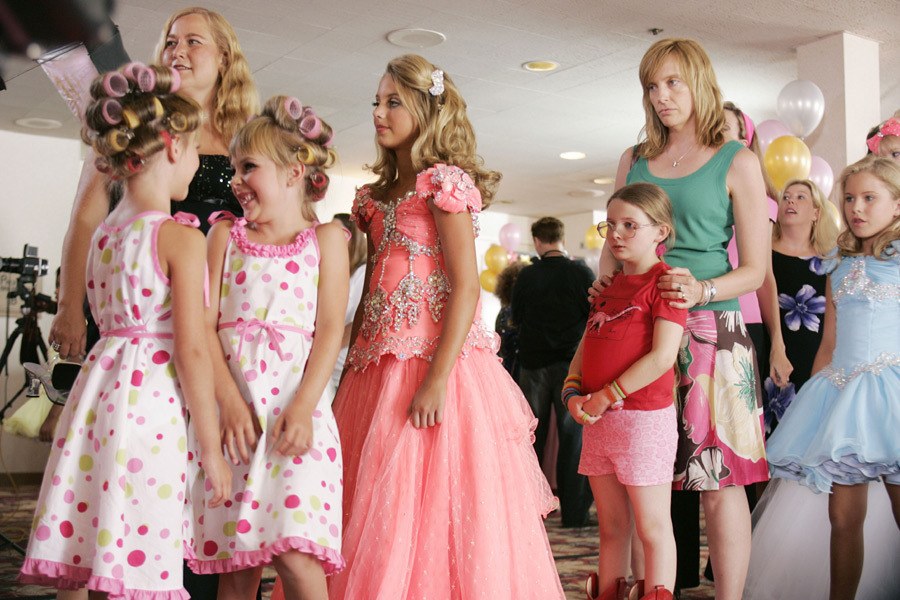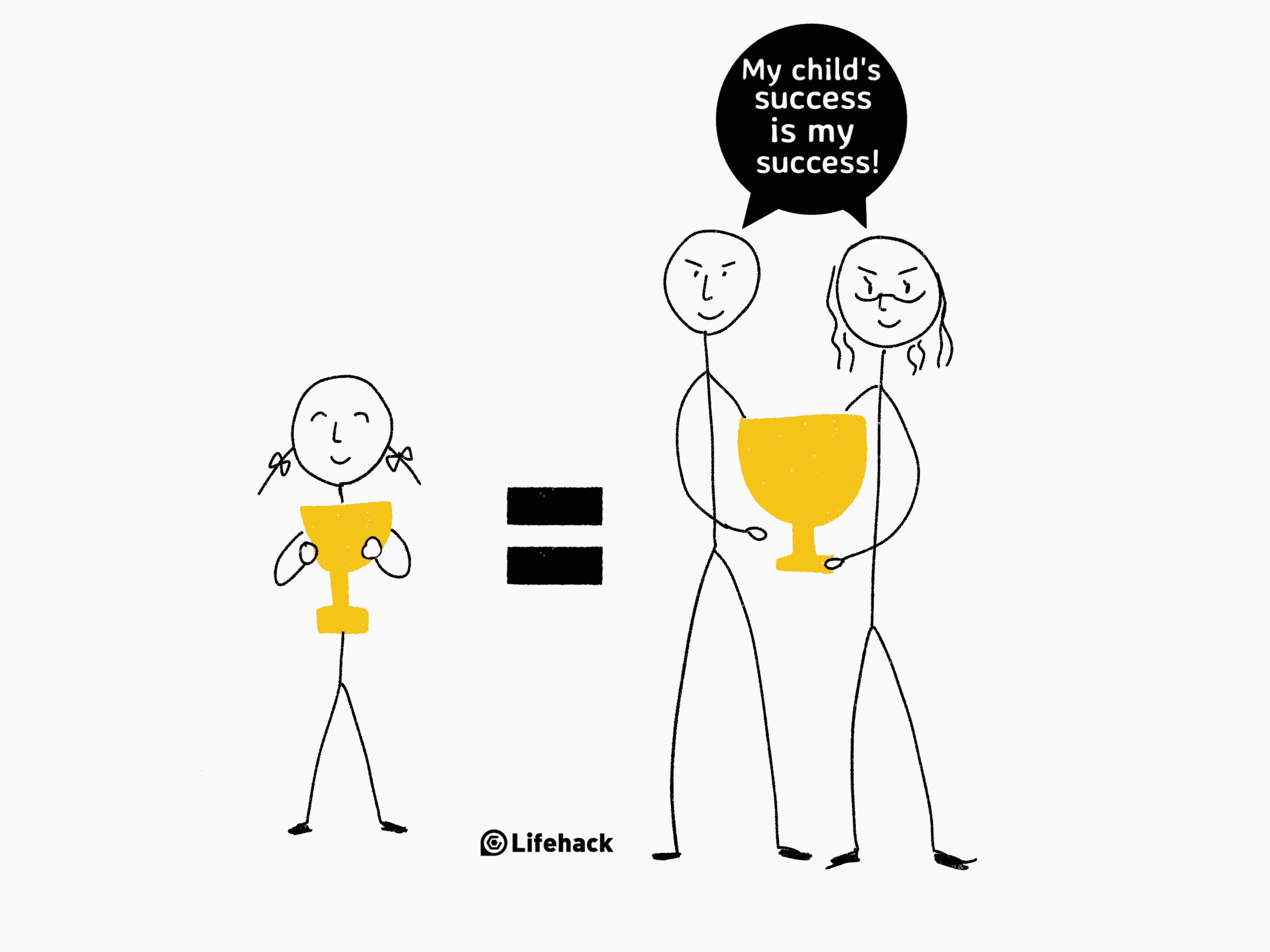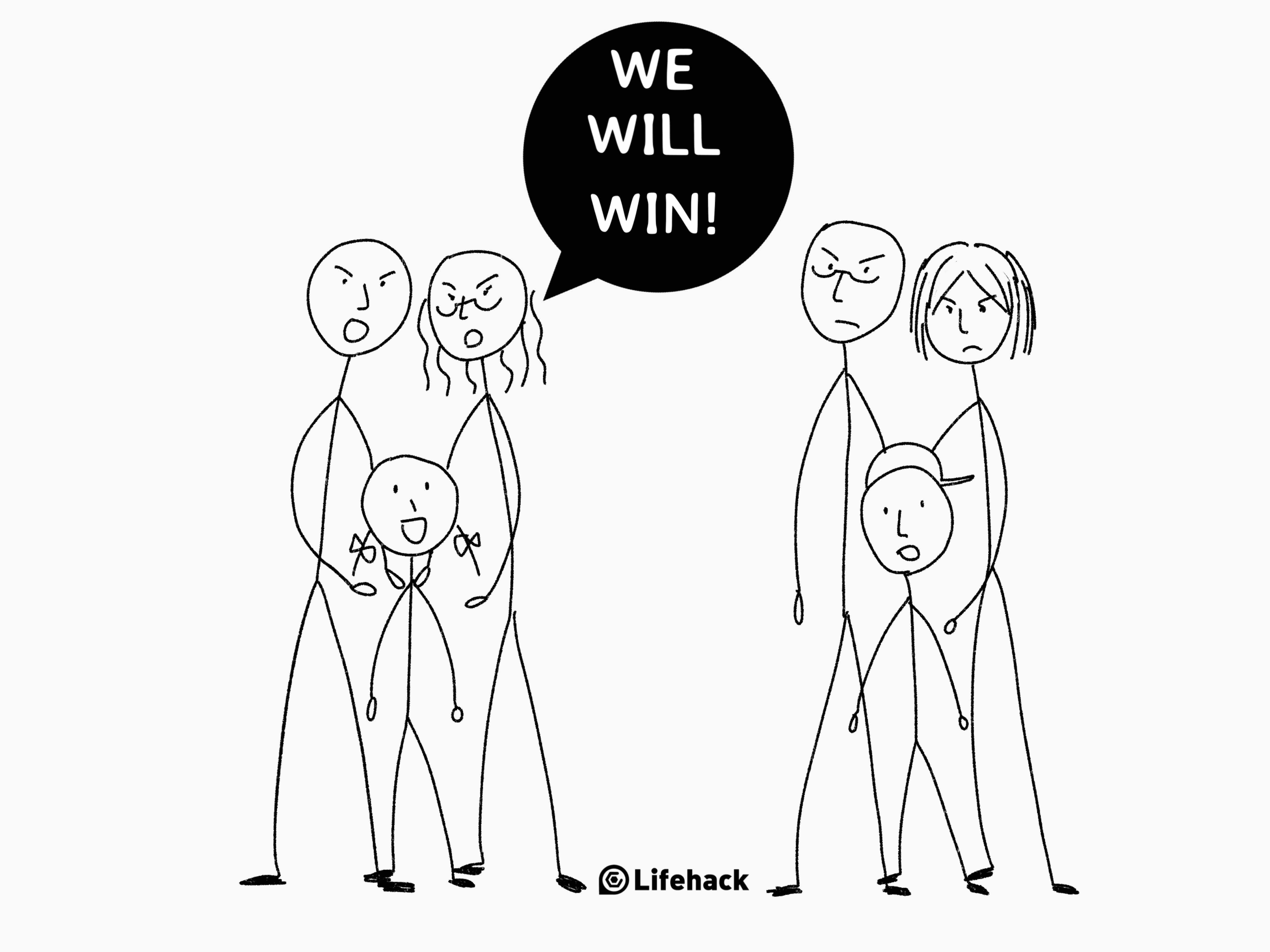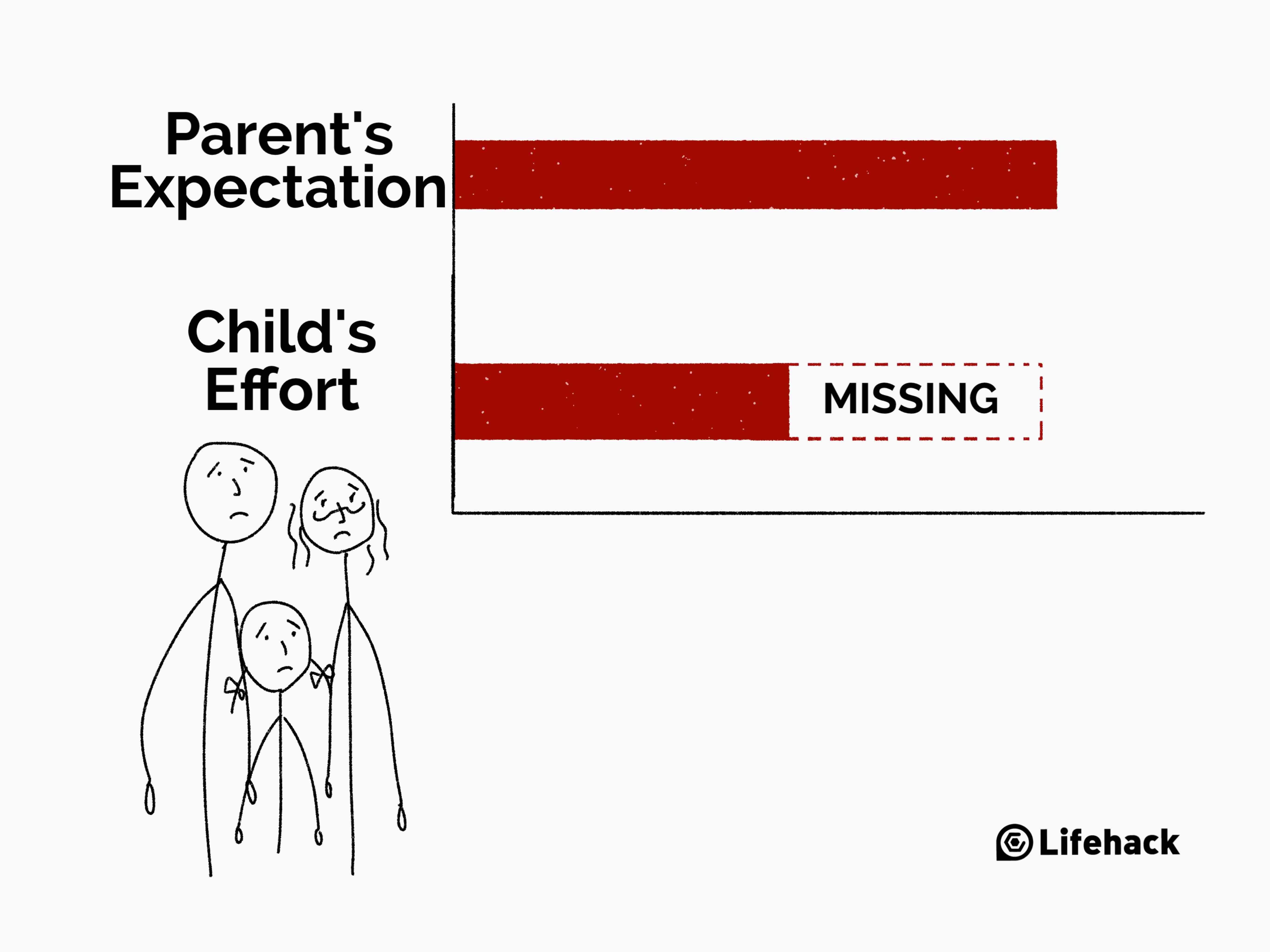The well-known movie Little Miss Sunshine, is an example of this. The movie is built around a family’s journey to take their little girl Olive to a pageant. The family’s happiness seems to hinge upon Olive’s ability to perform in this pageant. That’s a lot of pressure for a seven-year old to bear. While Olive marches to the beat of her own drum, many of the other contestants’ parents are hyper-aggressive. They’ve set a standard that’s nearly impossible for a child to uphold.
These kids’ happiness isn’t coming from a joy of competing. In many cases, though, their parents’ happiness comes from the success of their children. It’s wonderful to want our kids to be the best at whatever they do, but we must ensure that they’re doing these things for the right reasons.
For the best of the kids?
I don’t know a parent who doesn’t want their kid to have more opportunities and have a better quality of life than they had. Parents sign their kids up for classes, put together special outings, and demand that they have the best education. Parents want their kids to grow up to be the smartest, most artistic, most athletic, most compassionate adult that they can be. When parents get into the mindset of raising “winners”, they run into trouble. Where there are winners there are also “losers.” It’s one thing for a child to feel competitive, but when parents become competitive, it can take the fun out of any activity. For example, if someone says that kid A plays the piano more beautifully than kid B, kid B’s parents might decide that he needs to practice more. Kid B attends more intensive piano lessons for longer hours so that he can improve. Just to assure that his musical superiority is without question, kid B’s parents also get him violin lessons. When kid A’s parents host the coolest birthday party of the season, kid B’s parent’s try to outdo them. They add more entertainment and invite more children so that kid B can have the most friends. In reality, kids A and B probably don’t care about fancy parties. This is about their parents.
The unspoken war between parents
Parents can be cruel to one another. When a parent doesn’t push their children to be involved in many activities, other parents may judge them. They may say things like, “Why aren’t they nurturing their kid’s interests by getting them into more activities?” or “Why are their kids so quiet? It’s like they don’t know how to interact with others because they never do anything.” The people who are saying those judgmental things may be genuinely worried, but the criticism may also highlight their insecurities about parenting. In response to this judgement, parents start to care too much about what others think of their children. They may feel that how people view their kids is a reflection on them. The self-conscious parent judges themselves based on what people say about their kids. “She said my daughter lacks social skills. Is that my fault? Is it because I keep to myself so much?” We forget sometimes that kids have personalities all their own. The self-consciousness and judgement have nothing to do with kids’ happiness. This is only about parents feeling secure. It seems like the better a kid does, the more parents feel like they are doing the right things as parents. They place their value and self-worth as adults on the shoulders of their children.
An endless chase to get ahead
Growing up is hard enough without added pressure. Being a parent is already stressful without having impossible standards. Kids and parents suffer when they are locked into unrealistic expectations. Children are extremely sensitive and intuitive. They pick up on everything their parents do, and they genuinely want approval. If they place more value on pleasing their parents than on doing what they love, they’ll never be happy. When kids are forced to focus on their parents’ expecations, they don’t get the chance to think for themselves. It feels good to get attention and recognition when you are the best at something. Kids who can’t meet the standard will always feel unfulfilled and unhappy. Parents who only take pride in their kids for their victories—whether those are sports trophies, good grades, or other awards—are missing out on a huge opportunity. Instead of teaching a child not to be afraid of failure, they show kids that their worth is outside of themselves. Their self esteem is built off external validation. Of course this is bad for the kids, but think about what it does to the parents. They run themselves ragged trying to make sure that their kids are always ahead of others. Children miss out on a childhood, but parents also don’t get to experience the joys of raising a child.
Set an example by self-focusing
Parents are often taught to sacrifice everything to ensure that their kids have the best opportunities. There’s nothing wrong with making sacrifices, but parents must remember that they have an identity outside of their children. Parents who are hyper-focused on their child’s success are unintentionally modeling a need for external validation. Instead of showing kids how important it is to be yourself, they make kids’ self esteem dependent on what other people think. Nobody intends to teach a bad lesson. Luckily, kids can bounce back from this sort of pressure if parents recognize that they are behaving this way. Parents can teach kids what true happiness looks like by making time to do the things that they want to do. Model balance and stability for kids, and you’ll be amazed at the good that can come from it.
Let them fall, and let yourself fall
When parents relax, they learn to take failures in stride. They can take some of the pressure off themselves and their kids. We’re going to mess up and fail sometimes. We can’t learn unless we make mistakes. How great is it that kids can make mistakes in the safe environment of your home? They’ll be better at handling failure in adulthood if they haven’t spent their whole childhood being the best at everything. When children make mistakes, everyone learns too. Their mistakes can make you a better parent. You may have to help them problem-solve or learn a new skill to deal with the problem. For parents who’ve been living through their kids’ successes, changing this pattern can come as a real blow to the ego. Kids have to learn how to pick themselves up after falling down, and they have to learn that they won’t always be the best at everything. You might have been afraid to let them fail because you didn’t want them to be disappointed, but now you can teach them about resiliency. You can show them that they still have value–even if they fail. That inner strength will carry them through any challenges that life brings to them. It will teach them to pursue the things that they want rather than do what someone else wants them to do. You have the power to shape your child’s self-esteem and self-worth. As Mr. Rogers says, The best thing that you can do for kids is to nurture their interests without losing sight of your own. Understand that they will make mistakes, and be there for them. Teach them what healthy competition looks like, but show them that they are more than the sum of external successes and failures.



